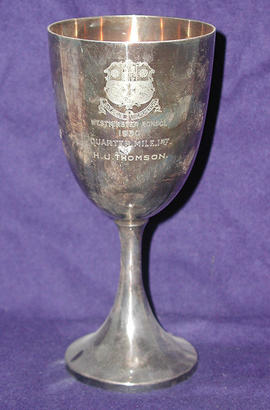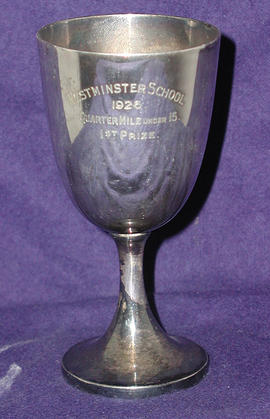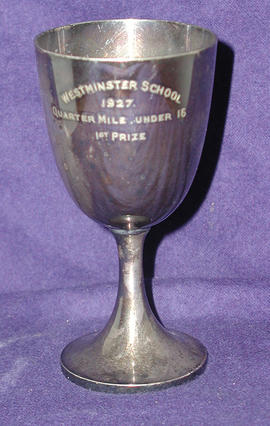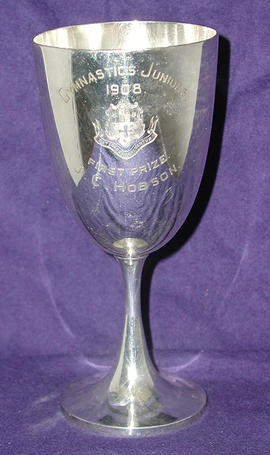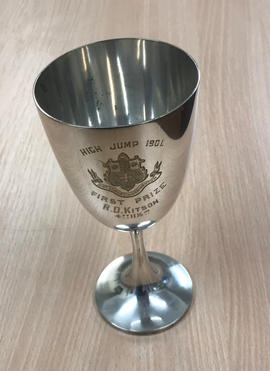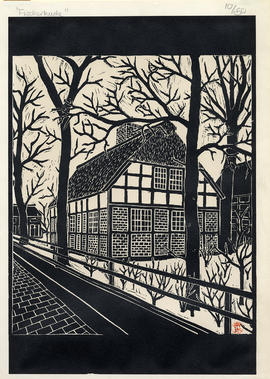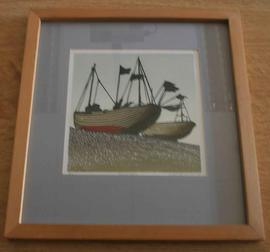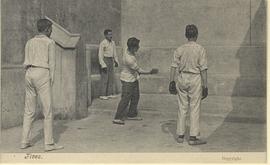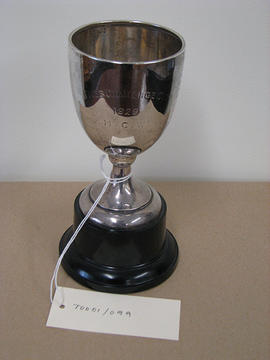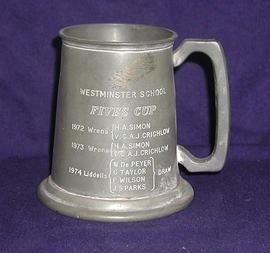Inscription: 'Westminster School 1930 Quarter Miles 1st H.J. Thomson'. Not loaded. No cover. Awarded to H.J. Thomson. Prince's Plate.
Mappin & Webb LtdNot loaded. No cover. Prince's Plate.
Mappin & Webb LtdInscription: 'Westminster School 1927 Quarter Mile Under 16 1st Prize'. Not loaded. No cover. Prince's Plate.
Mappin & Webb LtdInscription: 'Gymnastics Juniors 1908 First Prize J.C. Hobson'. Not loaded. No cover. Awarded to J.C. Hobson. Prince's Plate.
Mappin & Webb LtdSilver plate trophy, awarded in 1901 for first prize in the high jump to R.D. Kitson.
Inscription:
'HIGH JUMP 1901
[SCHOOL COAT OF ARMS]
FIRST PRIZE
R.D. KITSON
4 FT 11 1/2 IN'
Mark on underside of trophy reading:
'TRIPLE DEPOSIT
MAPPIN & WEBB'S
PRINCE'S PLATE
LONDON & SHEFFIELD'
Numbered 10 of an edition of 50
Funaki, TakashiOne copy annotated on reverse by R.S. Chalk, as follows:
'Memories 1918-1924
Fives was by far the most popular out of School game. Few could afford Racquets, and Tennis was never accepted as an alternative station till about 1923-4. *
The three Fives Courts in yard were continually patronised, especially by boarders. K.SS were particularly keen and proficient and participation in House ties was obligatory for all, I believe.
During the winter of 1921-2 I witnessed a memorable game of Fives played on the Court opposite Liddell’s Tree - the Headmaster (H.C.W.) and Mr (later Rev) R.E.C. Houghton (Master of VI) versus Rev. A.G.S. Raynor (Master of K.SS, just about to retire) and C.H. Taylor K.S. (later Cricket Blue). The Masters all showed great proficiency- not least the veteran ‘PiWi’. I wonder this game (witnessed by scorer) was never repeated.
*Yet, for all that, did we not produce C.H. Weinberger, Wimbledon Schoolboy Champion in 1919?'
Plinth Inscription: 1929 H.C.W. Awarded 1929-1937 and 2005
Walker & HallInscription: 'Westminster School Fives Cup'. No cover. Glass bottom. Handle. Awarded 1972-1974.
